Hunar Ghar
Rajasthan Bal Kalyan Samiti
Project – Hunar Ghar
MF Issue Area : Education, Health and Poverty Reduction
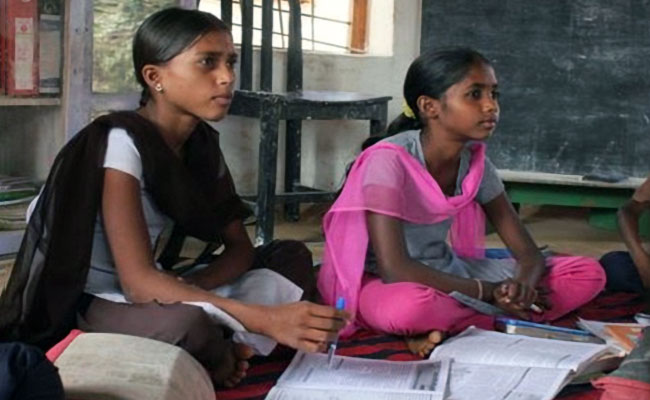
Educate for Life / Rajasthan Bal Kalyan Samiti has been serving Bakhel Panchayat, an extremely deprived and marginalized rural, Adivasi community in Udaipur, Rajasthan, for ten years. Educate for Life runs an innovative primary school called Hunar Ghar, which also acts as a community hub, providing integrated education, healthcare, and other support to the community, from pregnancy to adulthood. Educate for Life involves the local community in the running of the school, adapting curriculum material so that topics are meaningful to the experiences of first generation rural learners, and providing ongoing training, support and mentorship to their teaching staff.
Educate for Life believes that good education and good health go hand in hand. Children at Hunar Ghar School are given two healthy, nutritious meals each day, annual health checks from a pediatrician, vaccinations, weekly iron folate supplements and 6 monthly deworming medication, thus providing holistic services to break the cycle of illiteracy in poor, rural areas.
Website: www.rbks.org
Prayas
Tata Institute of Social Sciences (TISS)
Project – Prayas
MF Issue Area : Poverty reduction, Women’s Empowerment
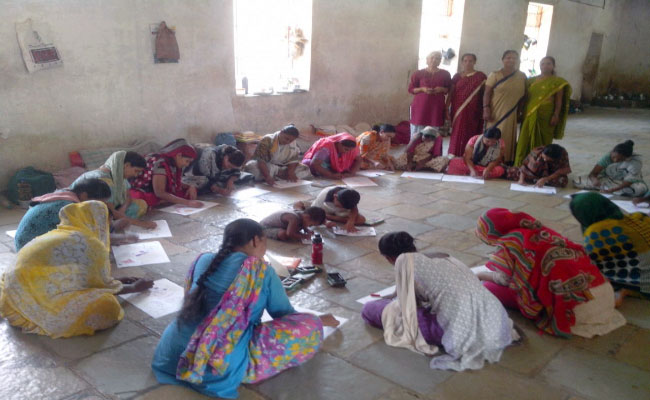
Most individuals processed by the criminal justice system are school dropouts, come from low socio-economic status, have weak family relationships, and/or possess very few marketable livelihood skills. Due to an expanding network of illegal contacts, reduced contact with family and community, and mental and emotional instability, many get pushed towards the margins, with increased vulnerability to crime and exploitation. Women living in custody and their children are in danger of getting further victimized or criminalized or fall into destitution or mental illness due to lack of stable shelter, social supports, and skills towards sustainable livelihoods. Prayas will target women rescued from commercial sexual exploitation in Mumbai and Thane and their children and families and released women prisoners. This project is aimed at developing their confidence and skills; stabilizing their shelter options; facilitating access to welfare schemes; and improving their social capital through family counseling, networking with the NGO sector, helping them develop employable skills, and establishing strong support systems to ensure that children are not neglected and victimized.
Rural Employment
Pragati Abhiyan
Project – Rural Employment
MF Issue Area : Poverty Reduction
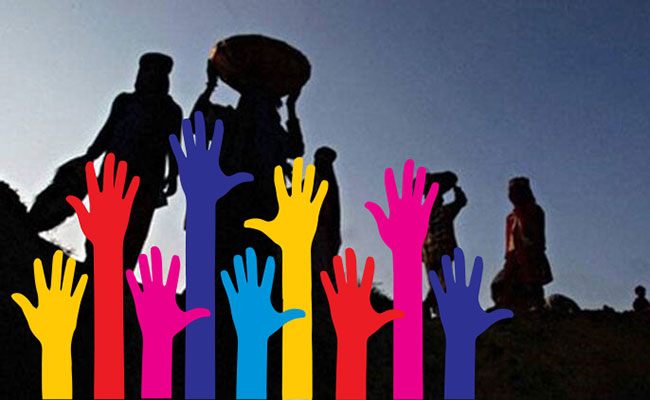
To address rural poverty and lack of infrastructure for agriculture, the government of India formulated the Mahatma Gandhi National Rural Employment Guarantee Act – MNNREGA. It promises 100 days of unskilled manual work to each rural family, paid according to the minimum wage of that area. However, the residents of the poor, backward regions that the act is designed to help, are often unaware of its existence, and powerless to exercise their rights. Nashik district has 15 blocks with almost 50% tribal population. Pragati Abhiyan works in the most tribal parts of Nashik district (Igatpuri, Triambakeshwar, Peth and Surgana) to ensure the effective implementation of MNREGA, organizing tribal youth and helping communities’ avail of the benefits due to them. Pragati Abhiyan will implement this work by conducting training workshops for tribal communities, on government schemes that are embedded in the law, such as the National Rural Employment Guarantee Act and Right to Information Act. This will bring employment and livelihood to these areas in the form of infrastructure and natural resource management projects.
Website: www.pragatiabhiyan.org
Detection and Prevention of Cervical Cancer
MASUM (Mahila Sarvangeen Utkarsh Mandal)
Project – Detection and Prevention of Cervical Cancer
MF Issue Area : Healthcare Provision
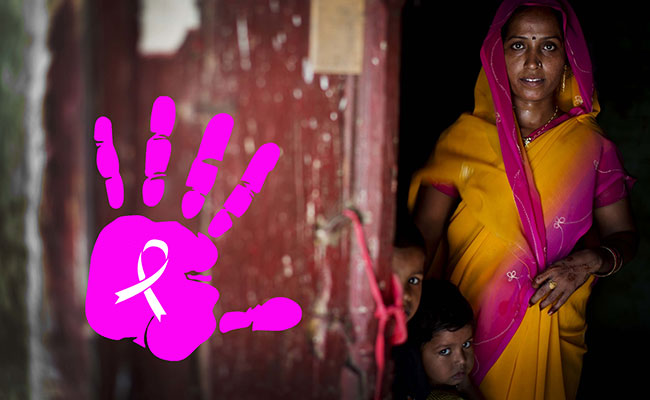
MASUM’s health program was initiated in the late 1980s. It evolved out of a five-year long health education project covering 100,000 people over three Primary Health Centre (PHC) areas in which local facilitators from the community and government health workers imparted health education at the village level. In the mid1990s, MASUM’s intervention extended to training of local health workers in women’s health, especially reproductive and sexual health. The focus was on empowering rural women with the belief that they can best take decisions about their lives, including reproductive and sexual health; thus self-examination with a speculum, torch and mirror was encouraged; healthy and pathological states of the reproductive tract were identified and explained; and early treatment of diagnosed illnesses were made accessible through village based initiatives and through the public sector at all levels – from the sub-center to the state level hospital in Pune city.
Considering that the test itself costs hardly any money, it is criminal neglect to let women suffer from a debilitating, killing, traumatic illness that can drain women emotionally, financially, and physically. Women need not suffer from any illness that can be diagnosed early – this is especially true in terms of making VIA and Pap smears available to all women through quality health care. MASUM’s experience proves that annual tests with 5% acetic acid can diagnose cancerous as well as pre-cancerous conditions, and through early intervention (from colposcopy to cancer related treatment) women’s lives can be saved. It can drastically reduce mortality, morbidity, financial burden, anxiety, and side-effects of invasive treatment.
Website: www.masum-india.org.in
Manas Mitra Prakalp
Halo Medical Foundation
Project – Manas Mitra Prakalp (Barefoot Mental Health Workers)
MF Issue Area : Healthcare Provision
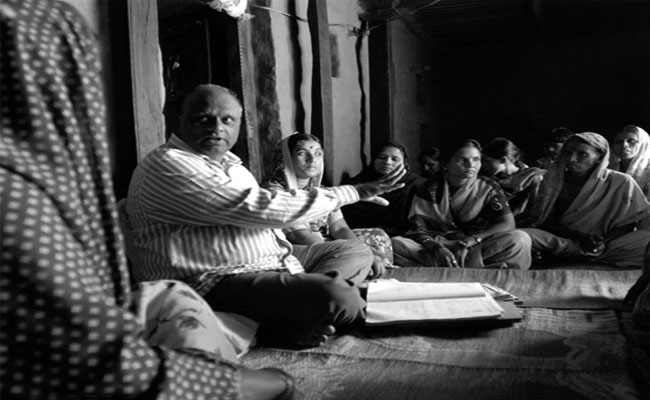
Marathwada is a semi-arid region with low rainfall, and prone to drought like situations. Since last 3-4 years the severity of drought situation is increasing. Women and Children are the first victims of the drought. To address this issue and for prevention of further farmer’s suicides Campaign ( Baliraja Jagar Abhiyan ) was organized in 140 villages . Agriculture is the main source of employment for a majority of the rural population. The prevailing drought situation has largely affected the crops, with total crop failure or some very marginal yield. Negligible farm yield has its immediate effect on the income of not only the farmers but also the landless that primarily work as farm labor. Some MNREGA works are underway, but mostly people are unaware of the huge potential for demanding work. Reports indicate 1130 farmers’ suicides during 2015 in Marathwada.
Repeated crop failures, indebtedness, harassment by money- lenders, drop in economic status, stress of paying dowry and the meeting the high wedding expenses for their daughter and sisters of marriageable age; inability to provide for the education of the children, breakdown of family and peer support systems, increase aspirations, lowering self- esteem has significantly increased hopelessness amongst the drought affected communities. The male dominant patriarchal system, social discrimination on caste, religion are aggravating this situation. Due to aggregation of all these economic and social factors, psychological distress and mental health disorders are on rise, which in many cases is resulting in suicides.
COVID 19 Pandemic has added in the stress situation. The problem has become more serious now. The main goal is to reduce incidence of Farmer’s suicides and bring down stress level and number of depression cases in community.
Website: www.halomedicalfoundation.org
